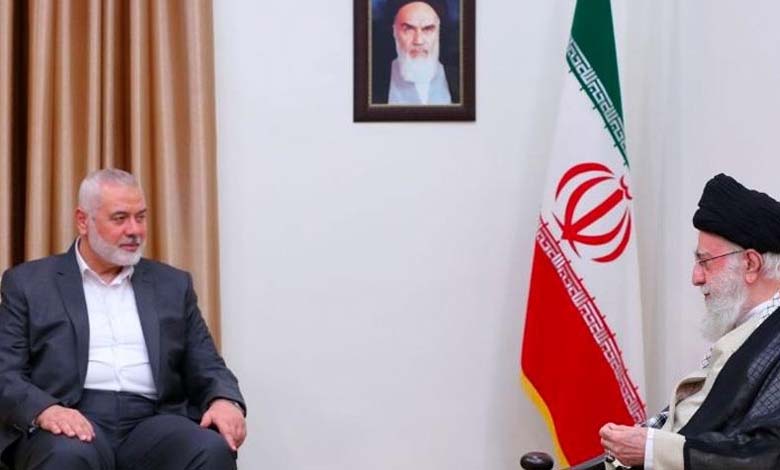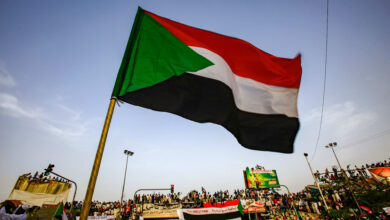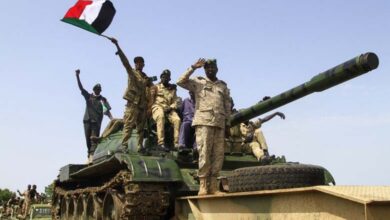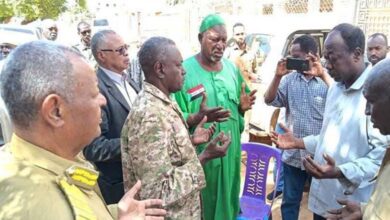Iran and Hamas: Between Alliance and Control”

Following the attack launched by Hamas on October 7th of last year on military barracks and settlements adjacent to the Gaza Strip, with Iran’s blessing, a report from the Fars news agency stated.
Iran’s Supreme Leader, Ayatollah Ali Khamenei, commented on Hamas‘ operation, stating, “We embrace the foreheads and hands of the clever planners and the brave Palestinian youth.”
These statements since the beginning of the war in Gaza summarize Iran’s position on Hamas‘ attack, which is to support and endorse Palestinian resistance movements and their attacks against Israel while emphasizing the independence of these movements. Western reports indicate limited Iranian anger towards Hamas leaders for concealing the attack from their allies in Iran and the Resistance Axis. Reuters reported that Khamenei complained to Ismail Haniyeh during their meeting in Tehran earlier that Iran was not aware of the October 7th attack. Therefore, Tehran would not engage in a proxy war on behalf of Hamas. Despite Hamas’ denial of the report through its representative in Beirut, Osama Hamdan, it is logical for Iran to be upset after being excluded from such a significant attack.
Question: Why didn’t Hamas inform Iran, the main supporter of the movement, about the attack? And why didn’t they at least consult Iran on the possibility of launching such an attack? Answering this question requires addressing the nature of the relationship between Tehran and Hamas.
Iran and Hamas: Between alliance and control
Relations between Iran and Hamas began in the 1990s, with Hamas enjoying immense Iranian support, including financial aid, weapons, technology, and training. When Hamas came to power in Gaza in 2007, Tehran and Hezbollah increased their support to assist the movement in producing locally-made weapons and providing operational expertise. Khalid Mashal, the former leader of Hamas‘ political bureau, emphasized the strength of the relationship with Tehran by calling Hamas the “spiritual son of Khomeini.”
However, despite the massive support and alliance, the relationship between Tehran and Hamas has always been volatile. With the outbreak of protests in Syria and the rebels taking up arms against President Bashar al-Assad’s government, Hamas, an Islamic Sunni ideological movement, chose to stand with the armed revolution and work against the Shiite Resistance Axis led by Iran. Consequently, al-Assad’s government closed Hamas‘ offices in Damascus, and its leaders fled to Qatar and Turkey.
It didn’t stop there. After Khalid Mashal posted pictures of himself in his office holding the Syrian flag, adopted by al-Assad’s opponents as their national flag, Hamas began carrying out operations in the Yarmouk camp in Syria against the Syrian government and Hezbollah, the Lebanese supporter of al-Assad. In late 2012, Osama Hamdan, a Hamas official, stated that the relationship between the movement and Tehran and Hezbollah had been frozen after a long series of tensions, especially between Hamas and Hezbollah, whose strongholds in Lebanon and Syria had been targeted by missile attacks. Members of Hamas were implicated in this attack.
When Hamas supported the Syrian opposition, the movement believed that the presence of the Muslim Brotherhood in power in Egypt would support them and that it was time to distance themselves from the Shiite Resistance Axis in exchange for supporting the main Islamic group in Egypt. However, after the overthrow of the Muslim Brotherhood‘s rule and Hamas facing a financial crisis due to the cut-off of Iranian financial support, along with Israel tightening its grip on Gaza and Egypt destroying tunnels in Sinai, Hamas leaders began to think that there was no escape from rebuilding the relationship with Iran and Hezbollah.
In 2017, some Hamas leaders, supportive of strengthening relations with Tehran and Hezbollah, such as Mahmoud al-Zahar, attempted to restore the relationship. Al-Zahar met with Iranian and Hezbollah leaders, while the Syrian government refused reconciliation with Hamas without an official apology from the movement to the Syrian government. Hamas leaders refused to apologize, emphasizing that Hamas‘ relationship with Iran and Hezbollah had nothing to do with its relations with Syria.
Between 2017 and 2020, the former commander of the al-Quds Force, General Qasem Soleimani, sought to improve Iran and Hezbollah‘s relationship with Hamas by turning Shiite ideological differences into an agreed-upon Palestinian ideology by all members of the Resistance Axis. However, tensions persisted between Hamas and Hezbollah, Tehran’s strongest ally in the Resistance Axis. It was rumored that Hassan Nasrallah, the Secretary-General of Hezbollah, was not able to overlook Hamas and its actions in Syria. It was also reported that Nasrallah informed Qasem Soleimani before his assassination that Hamas was not worthy of joining the Resistance Axis.
Disputes between Hamas and Hezbollah and Iran increased after Soleimani’s assassination, especially after it was rumored that Hezbollah planted an Iranian spy to monitor Musa Abu Marzouk, one of Hamas‘ leaders opposed to the relationship between Iran and Hamas. At that time, Hamas felt insulted, especially since a year earlier, Iran had attempted, through a Palestinian Shiite group it established in 2019 called “Sabireen for Gaza Support,” to implant a Shiite military wing in Gaza away from Hamas. Hamas then besieged the group and arrested its founder, later releasing him at Iran’s request.
After Soleimani’s death and Israel’s attacks on Iranian nuclear facilities and the assassination of nuclear and military scientists, Tehran saw that the common interest against Israel should outweigh differences with Hamas. Iran believed it was time to increase support for Hamas to confront Israel, and Hamas accepted this settlement.
Despite Hamas‘ ties to Iran, it has often demonstrated independent positions. The relationship between Iran and its regional proxies and allies, including Hamas, is highly flexible. Political and ideological loyalty to Iran does not prevent proxies or allies from pursuing their own agendas.
It can be said that Iran established the Resistance Axis to be an interconnected network of shared interests in a hierarchical manner without strict control over its members. Therefore, it was natural for Hamas to make the decision to launch the October 7th attack independently, as long as the interest was mutual, or perhaps Hamas leaders were concerned that if they informed Iran and Hezbollah of the attack, they might have a different opinion, especially as Tehran was preparing for direct negotiations with Washington after a prisoner exchange deal, and both sides sought to reduce tensions and reach a mini-agreement. As long as the interest behind the attack would please Tehran and serve its interests, there would be no objection. In addition, Hamas leaders wanted the decision to be purely Palestinian.
Will Tehran abandon Hamas?
“Thank you, Hezbollah, for what you’ve done, but this battle requires more from all allies,” said Moussa Abu Marzouk, a leader in Hamas. Indeed, many observers expected Iran and Hezbollah‘s involvement in this war to be more serious, not just Hamas leaders, especially since this war is the first real test of the seriousness of cooperation between the elements of the Resistance Axis led by Tehran. However, so far, neither Iran nor Hezbollah have the desire to expand the war or engage in a multi-front confrontation, especially as the specter of the high military and economic costs that Hezbollah, Tehran’s strong ally, would incur could be devastating.
At the same time, Iran’s abstention from participating in this war, especially with Israel’s incursion into the Gaza Strip, puts Tehran’s leaders at a crossroads. Either they commit to a non-intervention stance, in which case Israel may succeed in achieving its goals of eliminating Hamas rule in Gaza, thus jeopardizing the interests of the Resistance Axis and the strategy of unifying fronts repeatedly called for by Iran to deliver a decisive blow, or Hezbollah and its immense strategic capabilities, which have helped Iran build over many years, will be put in the line of fire.
It is in Iran’s interest not to enter into conflict and expose Hezbollah, considered one of its most important and strongest allies in facing Israel, to danger. In parallel, Iran will need to act swiftly if Hamas shows signs of genuine collapse. At that point, it will be difficult for Iranians to choose between accepting the loss of Hamas, a significant strategic ally against Israel, or intervening to protect it.
The possibilities of Iran and Hezbollah‘s intervention in the war remain uncertain. Nevertheless, Iran is banking on the gradual escalation from Hezbollah‘s side and Iran’s allies in Iraq and Yemen, as well as the increasing international reactions calling for an end to the war, to eventually succeed in stopping the war and saving Hamas from the Israeli squeeze.












